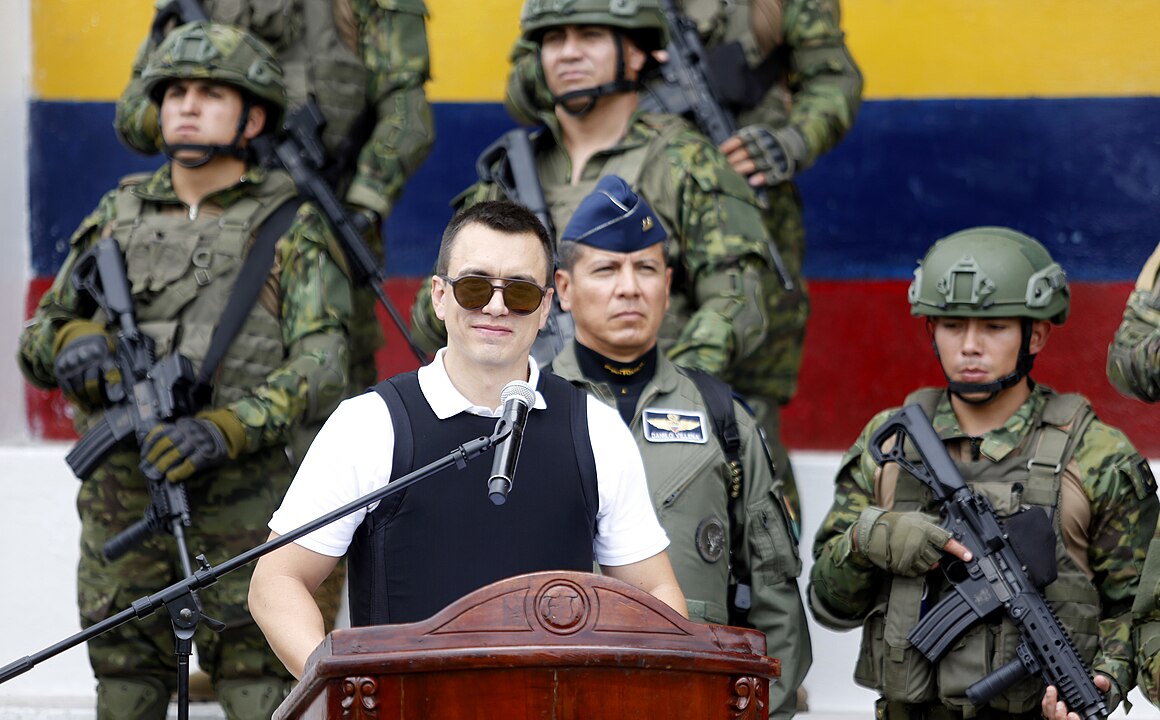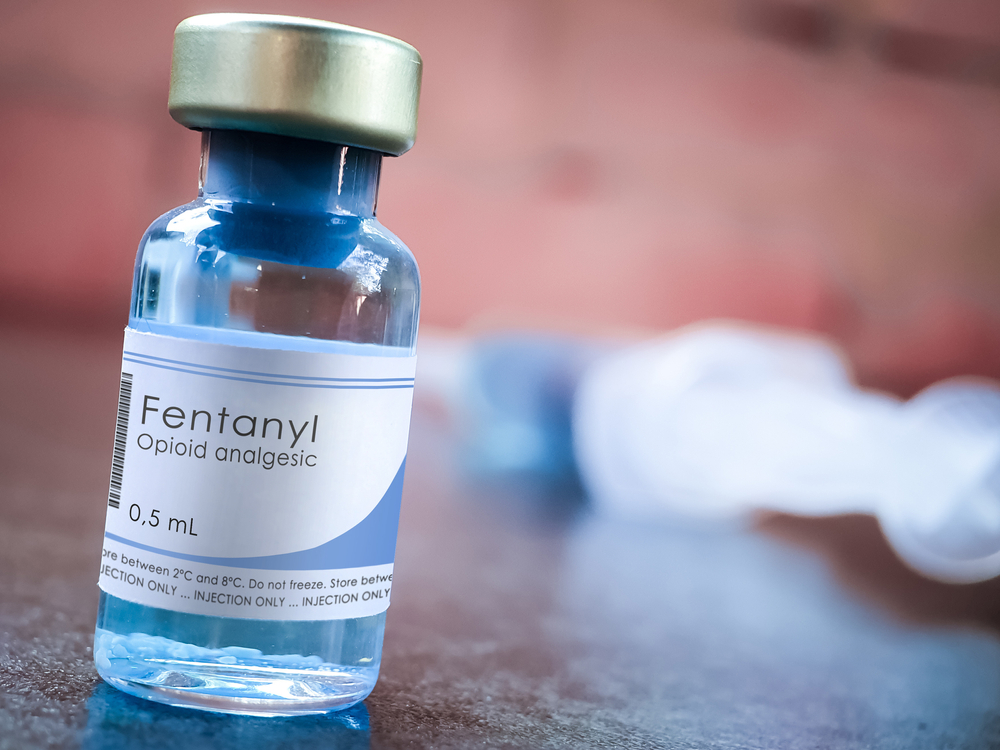In early January, a series of very public and violent events across Ecuador was, unfortunately, a long time coming; it was the product of the continued failure of past security and drug control strategies that were unable to keep citizens safe from cartel-related violence. The current approach to drugs is partly to blame for the strengthening of new criminal groups that are linked to international cartels.
At the end of 2023, and in his first hours as president, Daniel Noboa indicated what was to come during his premiership. His first measure was a mandate to repeal the Drug Threshold Tables, promising that it would partially resolve the current crisis of violence and security. The tables, first implemented by the government of Rafael Correa (2007-2017), established sentencing guidelines to help differentiate between possession for personal consumption and micro-trafficking.
“The table is nothing more than a legal tool for judges to differentiate between consumers and traffickers,” Ramiro Ávila Santamaría, professor at the Faculty of Law of the Universidad Andina Simón Bolívar, told TalkingDrugs.
While it was an initial step towards a health-centred approach to drug control, it became a political scapegoat for Ecuador’s insecurity; revoking the table was the first victim of Noboa’s new drug war.
Through TikTok, Noboa shared a video in which he announced that the drug tables promote consumption in children and adolescents, with no evidence to back his claim. He called for their abolition.
@danielnoboaok ¡Hoy la Tabla de Drogas se va! Por nuestros niños, por nuestros jóvenes, por nuestras familias, por nuestro país 🇪🇨 El Nuevo Ecuador ya está aquí ✊🏻 #ElNuevoEcuador #NoboaPresidente #porunnuevoecuador #danielnoboaazin #danielnoboapresidente #NuevoEcuador #decreto #tabladedrogas #ecuador
“Noboa’s position is short-sighted, superficial, irresponsible and ineffective. The only thing he will achieve is to increase the prison population with the most vulnerable people. Noboa should [instead] promote mechanisms for understanding the table,” says Avila.
A recent history of damaging drug policies
Makeshift and failed drug policies are part of Ecuador’s recent history, with former government’s decisions aggravating the current situation. In 2005, for example, former president Lucio Gutierrez (2003-2005) had issued a decree, supported by the United States, “to grant incentives to the National Police for each person arrested for drug possession,” said Alex Valle, professor at the Instituto de Altos Estudios Nacionales (IAEN) and a specialist in human rights and criminology.
“The police were offered, more or less, $100 USD for each person captured; this led to an increase in the number of people in prisons that were already suffering from overcrowding problems,” Valle added.
In an effort to address budget deficits, the government of Lenin Moreno (2018-2021) began cutting public spending, dissolving the Ministry of Justice and Human Rights as well as the Technical Secretariat for Comprehensive Drug Prevention (SETED), which was responsible for technical knowledge around drug education, warning systems and community actions. The unconstitutional suppression of these institutions has, according to the Office of the Americas, prevented Ecuador from having the needed resources to implement drug-related programmes.
The absence of social justice policies and a violent battle against crime is a great danger for Ecuador.
Moreno’s successor, Guillermo Lasso, was no different. Under his presidency, social neglect increased, with cuts to the prison system, education and health. “Lasso deepened the securitised, military and police vision in the prisons and outside them,” says Jorge Paladines, Ecuadorian researcher and author of Matar y Dejar Matar (Kill and Let Kill), which exposes the Ecuadorian prison disaster. According to the author, ineffective measures were taken, such as prisoner exchanges of leaders of criminal organisations, and shorter-term training for new police officers.
What awaits Ecuador if there is no change of course
At the moment, part of the country is asking itself: how can we get out of this situation with the failed recipe of prohibition, criminalisation and indiscriminate imprisonment? If we lived in a country with an adequate welfare state, with education, measure against poverty and fewer people imprisoned for drug use, “we would partly put an end to the prison business”, says Valle. For him, there is great interest in Ecuador, particularly from security forces and certain international corporations in maintaining a punitive system: “security is a million-dollar business”.
In a month and a half of government, Noboa has already announced the approval of plans for the construction of two new prisons. He additionally sent an urgent economic proposal to the National Assembly where – among other measures – he proposed an increased tax rate to “finance the war against delinquency”. This measure is a part of his “state of emergency” decree, which states that the country is experiencing an internal armed conflict where the Armed Forces are needed to carry out operations to neutralise criminal groups.
The absence of social justice policies, and a violent battle against crime is a great danger for Ecuador, especially when there are no technical institutions in place to ensure the Government is making informed and evidence-based drug policies.
When you look at criminal policies, the measures Noboa is taking are partial and isolated from the central problem: the absence of social inclusion policies. “He wants to put up temporary barges,” says Ávila Santamaría, referring to another of Noboa’s campaign proposals: the famous floating prisons to fix overcrowding.
Humane solutions for violence in Ecuador are needed
In this complex context, Ecuador continues to fail to seriously consider alternative approaches to the drug war, with no interest in public discussions on drug-related issues. “There are no signs of a harm reduction policy, there is no clear public health policy on what to do in eventual scenarios of more lethal drug use,” says Paladines. “If we try to make public policies ignoring the social fact that drugs are not going to disappear, it is equivalent to thinking that in order to eliminate HIV we must eliminate sexual relations”.
It has been a long time since Ecuador has publicly discussed issues like the restructuring of the rehabilitation system, or the treatment of addictions as a public health issue, despite the latter being a constitutionally guaranteed right. Right now, formulating public policies from below – from the needs of those living the worst consequences of the drug prohibition regime – is unthinkable.
According to several analysts TalkingDrugs spoke with, if punishment and the emphasis on criminalisation to solve social problems remain the chosen path, Ecuador will face very difficult times in the future. Colombia has already experienced this in the 80s and 90s. Ecuador is tracing a dangerously similar path.


